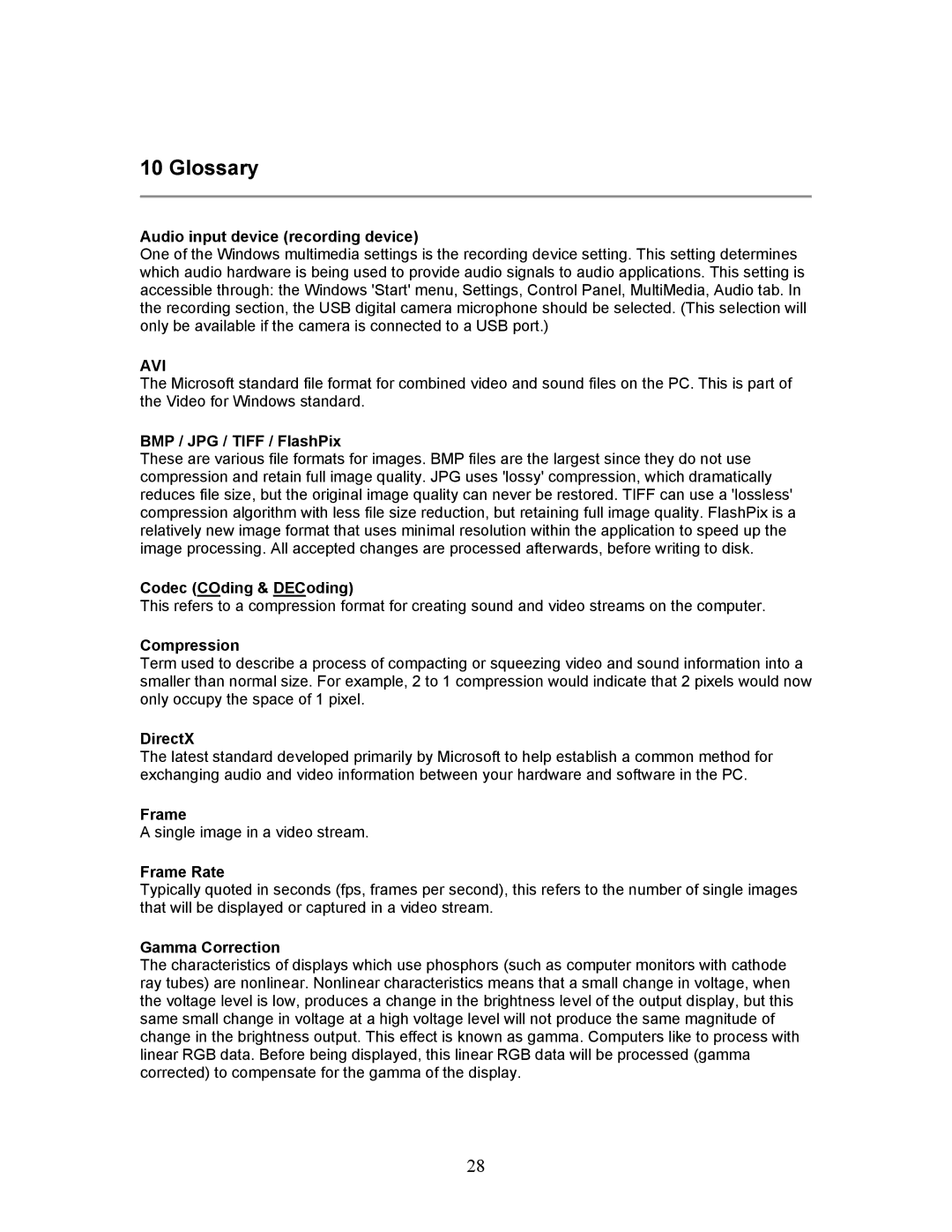10 Glossary
Audio input device (recording device)
One of the Windows multimedia settings is the recording device setting. This setting determines which audio hardware is being used to provide audio signals to audio applications. This setting is accessible through: the Windows 'Start' menu, Settings, Control Panel, MultiMedia, Audio tab. In the recording section, the USB digital camera microphone should be selected. (This selection will only be available if the camera is connected to a USB port.)
AVI
The Microsoft standard file format for combined video and sound files on the PC. This is part of the Video for Windows standard.
BMP / JPG / TIFF / FlashPix
These are various file formats for images. BMP files are the largest since they do not use compression and retain full image quality. JPG uses 'lossy' compression, which dramatically reduces file size, but the original image quality can never be restored. TIFF can use a 'lossless' compression algorithm with less file size reduction, but retaining full image quality. FlashPix is a relatively new image format that uses minimal resolution within the application to speed up the image processing. All accepted changes are processed afterwards, before writing to disk.
Codec (COding & DECoding)
This refers to a compression format for creating sound and video streams on the computer.
Compression
Term used to describe a process of compacting or squeezing video and sound information into a smaller than normal size. For example, 2 to 1 compression would indicate that 2 pixels would now only occupy the space of 1 pixel.
DirectX
The latest standard developed primarily by Microsoft to help establish a common method for exchanging audio and video information between your hardware and software in the PC.
Frame
A single image in a video stream.
Frame Rate
Typically quoted in seconds (fps, frames per second), this refers to the number of single images that will be displayed or captured in a video stream.
Gamma Correction
The characteristics of displays which use phosphors (such as computer monitors with cathode ray tubes) are nonlinear. Nonlinear characteristics means that a small change in voltage, when the voltage level is low, produces a change in the brightness level of the output display, but this same small change in voltage at a high voltage level will not produce the same magnitude of change in the brightness output. This effect is known as gamma. Computers like to process with linear RGB data. Before being displayed, this linear RGB data will be processed (gamma corrected) to compensate for the gamma of the display.
28
